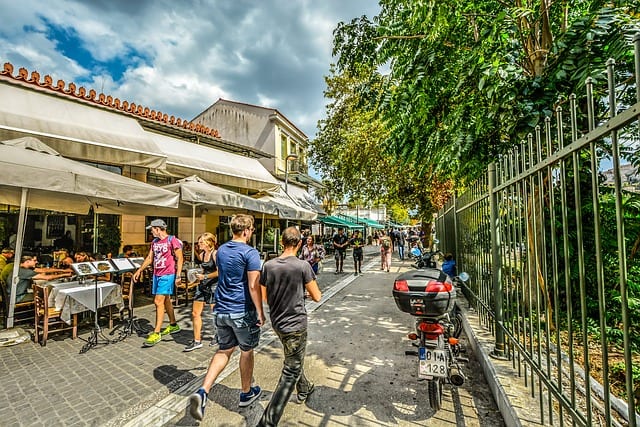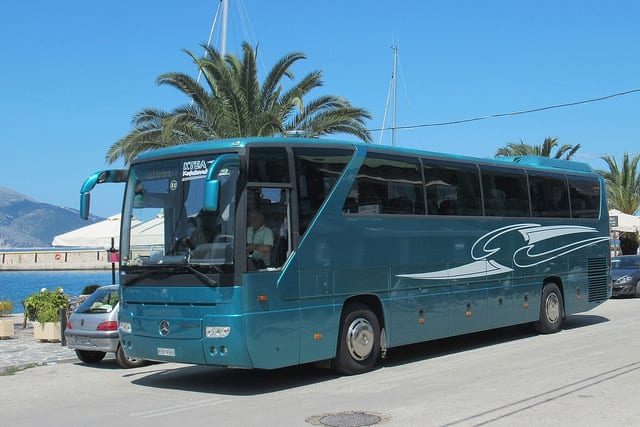Accommodation in Athens
Due to the market opening for young travellers wanting to stay in the city centre but without paying a lot for service hotel prices, platforms such as Hostelclub, Airbnb and Couchsurf have thrived.
The cheapest way would be to use Couchsurf, as it is a free way to stay. Members offer up somewhere to stay- a couch or a bed- to anyone willing. The arrangements are made up beforehand, with the hosts being reviewed from previous visitors.
Airbnb offers something similar, except for low-cost you will have your own bedroom (usually in Athens, the whole apartment) for a pre-arranged duration. The fee will be paid through the website for your financial protection. Whilst some very central neighbourhoods charge higher nightly fees, some such as Exarchia, Victoria square or Pagrati might be cheaper.
Hostel principles are the same, with mixed dorms starting from around 12 euros a night but being more expensive due to location and timing that you book. It’s always good to book well in advance to get the best prices.

Street Food
Weather in Athens is often very hot in the middle of the day, during the summer season. Fortunately, there is a fixed price of 50 cents for a 500ml bottle of water across Greece, and it is often possible at kiosks to get 1.5l water on the go for 1 euro. There’s also an initiative across Athens to refill water bottles at certain cafes and restaurants, so check out the labels on the windows outside to see if they offer it, or just ask a staff member! If you’re looking for something stronger to drink on a budget, again the kiosks have what you need. Greek brand beers such as Alfa and Fix are available in cans or bottles, which is the same as what you’d pay 2 euros more for at a bar anyway. And with lots of places with a beautiful view to sit in the city, you can save money this way.

If you have a place to stay, you can make your own meal, the essentials like bread, fruit, yoghurt, and salad veg are all very cheap from a street market or a bakery. If you have to buy your food, the pita souvlaki is the best to buy to keep the costs down, with vegetarian options now widely available also. If you need something more substantial, but still don’t want to break the bank, try a local tavern or as the Greeks say it “mezedopolio” in peripheral neighbourhoods such as Petralona, Metaxourgio or Exarchia.
How to move in Athens?
By foot
The best way to get around the city on a budget is of course by foot. The roads are fairly straightforward, and if you stick to the major roadways you can go directly from northerly neighbourhood such as Mets to downtown Keramikos (Gazi). If you’ve grasped your tourist map well then you can cut the major roadways and head through the smaller streets directly and take shelter in the shade of trees and restaurant gazebos.

Public Transport
If you must take some form of transport, public transport will be incredibly cheaper than a taxi. Plan ahead to save yourself more money, because a single 90-minute ticket costs 1,40 euro, whereas a 5 journey ticket is 6,50 euros. Also, if you’re a student or a person above 65 years old it is worth going to a station guard as you can get your ticket half price (60 cents for a 90-minute journey).
KTEL buses
If you’re leaving the city to go further on to northern Greece or to the Peloponnese, the best way for budget travel longer distance is to take the KTEL coaches. KTEL (local) buses leave from a number of bus stations around the city, depending on where you need to go. Prices vary depending on where you’re going, but can be 30-50 euros for a return ticket for a 5 or 6-hour distance.

Useful Tips for Athens Sights
Whilst the main reason for visiting Athens is likely to be sightseeing for the history, if you’re on a budget you may need to select the most important sights for you as they all have an entrance fee.
Now it’s worth mentioning that if you are an EU student, younger than 12 years old, over 65 years, a guide, a journalist or soldier you can get into the museums and historical sights for free. There are also some days when the museums are all open for free: 6 March, 18 April, 18 May, 5 June, 27 September, the last weekend of September. On Greek national holidays not all of the museums are open, so before visiting one see check if it is open.
At the Acropolis museum you can also enter the reading room and cafe for free, and from there you can see some of the exhibits above and read all about them. Many of the central historical sights are viewable from street level and so it’s not necessary to go in. Again, it’s worth planning ahead to decide where to allocate your budget funds to the places you’d most like to see.




